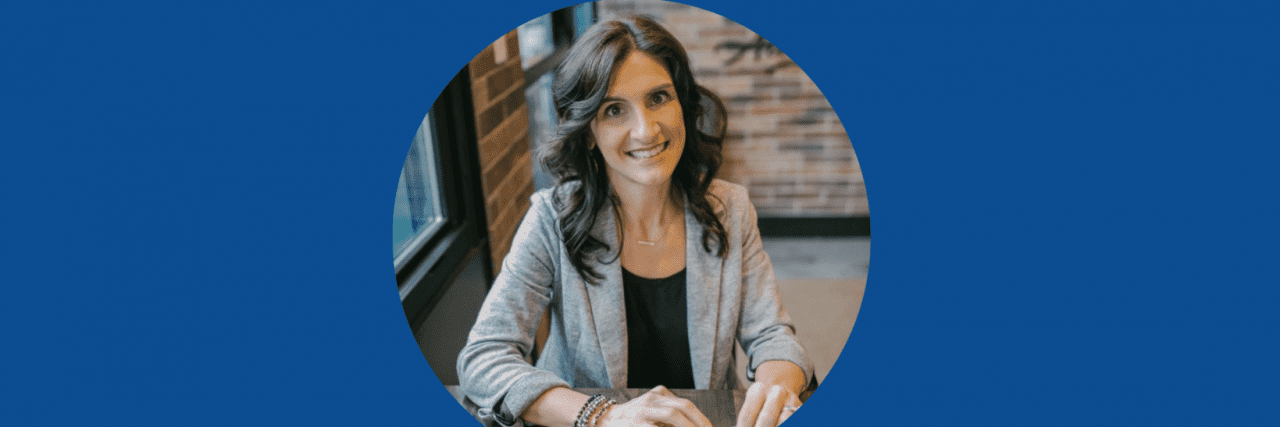'You Shouldn't Have to Do This Yourself': Q&A With Jenni Nolan, Board Certified Patient Advocate
Jenni Nolan, BCPA, started her career as a medical office manager, where she quickly learned how challenging it can be to navigate the financial side of health care. After 20 years in this role, she learned more about patient advocacy, received her board certification from the Patient Advocate Certification Board in 2019, and started her financial patient advocacy business, Clear Healthcare Advocacy, in 2020.
This interview has been edited for length and clarity.
What is a board certified patient advocate?
There are different levels of patient advocacy. Starting at the root, the patient advocate is anyone who assists patients with care, navigation, patient rights, coordination of care, and/or medical billing issues. An independent patient advocate, like myself, does this on behalf of the patients (i.e., they’re not hired by/paid by the medical providers, medical facilities, insurance companies, etc.). A board certified patient advocate is a patient advocate – independent or otherwise – who is certified by the Patient Advocate Certification Board. We have to study for and pass a very rigorous exam to determine our abilities and fitness for serving patients and their families who need assistance with some portion of their journey through the health care system. If you pass the test, you become board certified, and then we have to maintain 30 continuing education credits every three years. We are held to a recognized standard of excellence for the competent and ethical practice of health/patient advocacy. (The Code of Professional Responsibility can be found here.)
What is your favorite part of your job?
I’m very passionate about my job, so I like a lot of it, especially solving the puzzles (i.e., identifying where the problem lies and getting the problem resolved) for my clients and relieving them of the stress of having to deal with the financial aspects of their health care – they’re already overwhelmed with their diagnoses and demands of everyday life to have to deal with this stuff. Then, of course, if I can save the person money, that’s even better. It doesn’t always happen, but at least they can rest assured that what they’re paying is at least correct, even if it’s still expensive.
What is the most challenging part of your job?
On a daily basis, it’s getting to the people at the insurance company, medical billing offices, and facilities who actually understand the problem and have the power to do something about it. It takes time and perseverance and anytime I get a direct line or an email for someone who has some power, I will latch onto it with all I’ve got.
What kind of cases are the most common? How do you work with your clients to resolve them?
Overpriced services. The majority of people who reach out are going to be some kind of fee negotiation, usually when something looks overpriced. First, I have to make sure the bill is correct. I need to get a hold of their benefits and make sure it was processed correctly. Once we rule out any errors, then we know this is just overpriced and we’ll see if we can get it down.
What advice do you have for folks in the rare disease community who might struggle with managing the financial side of their health care?
First off, be diligent. Be diligent in your record-keeping and track every medical bill and insurance explanation of benefits (EOB) as soon as you receive them. If they don’t look right, get to work immediately. Don’t let everything pile up, because that’s when it gets super overwhelming. Be persistent when you receive pushback or feel like you’re getting nowhere, and just keep fighting for yourself. And obviously, at the end of the day, if you are completely overwhelmed, hire a patient advocate. You shouldn’t have to do this yourself. There are some agencies that do it for free. Managing this aspect of health care can feel like a full-time job.
What can people do today to set themselves up for success?
Familiarize yourself with your benefits. What is your deductible? How much is your out-of-pocket max? Your coinsurance? What services require prior authorization? Are your providers/facilities in-network? Then you’ll know if you start receiving bills that are wrong. Try to be proactive in finding in-network providers, making sure authorizations are obtained in advance of procedures being performed, and obtaining price estimates.
What’s one important takeaway about health care billing that you want Mighty audiences to know?
Medical bills are incorrect at least 30% of the time. If you’re not reviewing them/comparing them to your insurance EOBs, you’re likely paying more than you owe on at least 30% of your bills. Try to stay on top of things. There are things you can do to avoid medical debt, whether that’s financial assistance or payment plans. And if you can’t deal with it at that moment, find somebody else who can do it for you, whether it’s a volunteer advocate or someone like myself. And whether it’s just the peace of mind or they’re actually saving you money, I think a lot of people would find that it’s worth it to let go of that burden.

